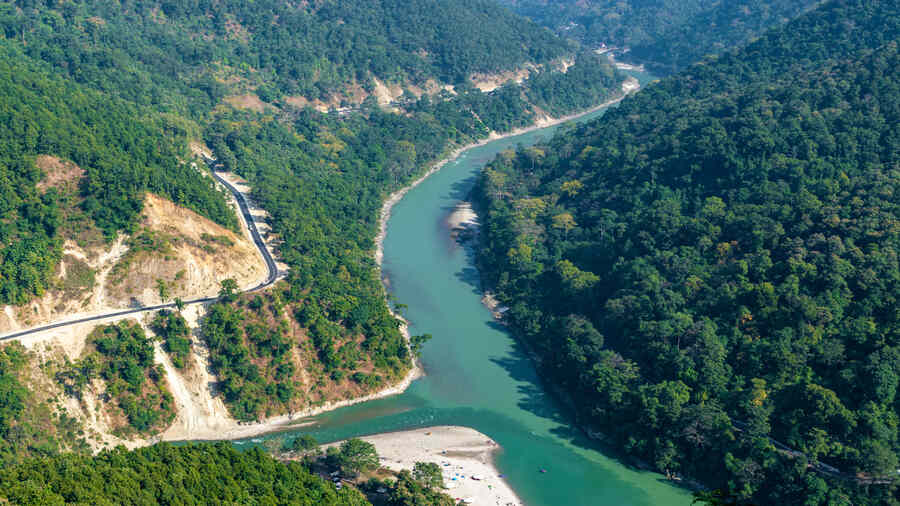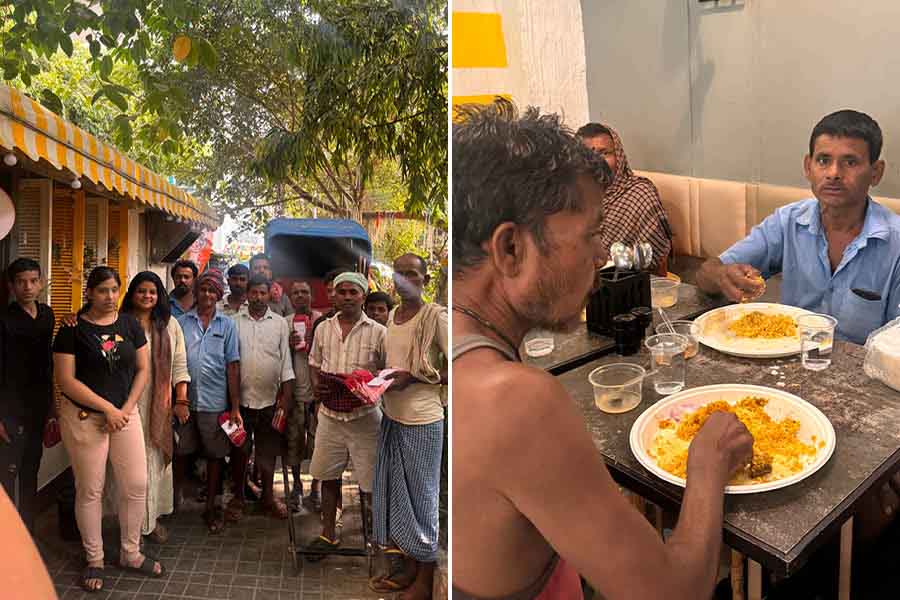Bangladesh has decided to seek an explanation from India on the West Bengal government’s reported proposed projects on the Teesta reducing its flow, the foreign ministry said in Dhaka on Thursday, amid a protracted unsettled process of the trans-boundary river’s water sharing.
The foreign ministry’s comments came in response to a recent Indian media report suggesting that the West Bengal government has decided in principle to dig two new canals to divert the Teesta waters for irrigation purposes in Jalpaiguri and Cooch Behar districts.
“We will prepare a paper on the issue with the consultation of our water resource ministry and JRC (Joint River Commission) . . . (then) we will ask the Indian side on the issue,” Bangladesh’s foreign ministry spokesperson Seheli Sabrin told a news briefing.
She added that Dhaka was analysing “the situation with caution” and currently the foreign office was in touch with the water resource ministry and JRC to collect information about the proposed projects.
According to the media report, the West Bengal government has in principle decided to set up three hydropower projects in the Darjeeling hills, risking further offence to Dhaka which has been waiting more than a decade for a treaty on the sharing of the Teesta’s waters.
The Bangladesh foreign office said Dhaka would determine its course of action to resolve the issue after getting a response from New Delhi.
“We will (however) keep on our efforts to resolve any emerging dispute with New Delhi through dialogue in view of the excellent bilateral relations,” the spokeswoman said.
She also said the issue could also be discussed at the UN Water Conference next month in New York.
She said Dhaka remained engaged with New Delhi for a long time to sign the long-awaited Teesta water-sharing treaty.
In Kolkata, Sabina Yeasmin, minister of state for irrigation and waterways when contacted by PTI, said the canals were dug primarily to help agriculture in the surrounding areas and were part of an old project.
“This is an old project which was stuck due to some land-acquisition-related problems and a lack of funds from the central government. We have solved the land-related problems and sent a report to the centre,” Yeasmin said.
“These canals are being dug to help local agriculture. If we receive any complaint from the Centre, we will share the scientific reasoning for the project with Delhi. But we must remember that the water sharing treaty is a matter between two countries, the state government has nothing to do with it,” Yeasmin told PTI.
Other officials pointed out that the run of the river micro hydel projects can hardly affect the flow of any river.
Bangladesh and India were set to ink the Teesta Agreement during former Prime Minister Manmohan Singh’s visit in 2011, but West Bengal Chief Minister Mamata Banerjee precluded her from his entourage at the last minute opposing the treaty, frustrating the deal and largely upsetting the Indian premier’s much-hyped tour at that time.
Mamata later repeatedly assured Bangladesh that she would help resolve the long pending issue of sharing water from the Teesta River, saying she was keen to respond to “Bangladesh’s expectations”.
Since the 2011 setback, Bangladesh sought to settle the issue virtually raising it in every single bilateral meeting at political and official levels and Delhi repeatedly said the central government was seeking to reach an “internal consensus” on the matter with West Bengal.
Prime Minister Sheikh Hasina earlier criticised Mamata for her “unfortunate” stance against the water-sharing deal.
Earlier, the two countries had signed a landmark 30-year agreement on the sharing of water in the Ganges, removing a protracted irritant in bilateral ties during Hasina’s previous tenure as premier in 1997 while Deve Gowda was her counterpart in New Delhi and Jyoti Basu was the West Bengal chief minister.
The deal ensured the minimum water flow in the Ganges River during the dry season.
Except for the headline, this story has not been edited by The Telegraph Online staff and has been published from a syndicated feed.






